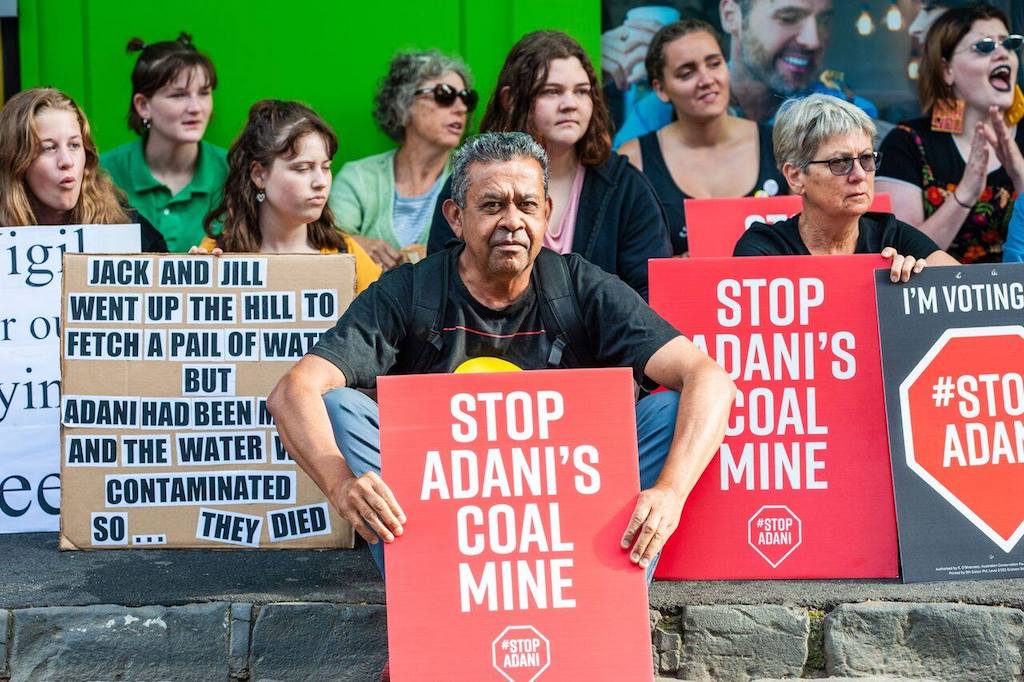
by Zafar Iqbal Yousafzai 22 June 2023
The recent tax raids on three nonprofit organizations in India have raised eyebrows and sparked concerns about the Modi government’s approach to dissent and its ties to powerful business interests. The raids targeted organizations critical of Gautam Adani, a prominent industrialist and political ally of Prime Minister Narendra Modi, who is involved in a contentious coal mining project in central India’s Hasdeo Arand forest. This crackdown exemplifies the government’s utilization of state power to advance its economic policies and support Adani, an influential player in the coal industry.
The Washington Post, based on interviews and confidential government documents, revealed that the nonprofits had been targeted for their opposition to the Hasdeo coal mine. They were accused of mobilizing protesters, filing lawsuits, and criticizing Adani’s projects. Of particular concern to Indian officials were the ties between activists and Western entities, which they viewed as a threat to national interests.
The Modi government’s handling of the situation also highlights its wariness of Western nongovernmental organizations and governments. The government’s anger toward the nonprofits stemmed from their communication with British and Australian researchers regarding Adani’s coal mining ventures. Accusations of divulging “internal information of India” and “conspiring” against Adani were leveled against environmentalists and lawyers critical of the government’s policies. Oxfam India, a humanitarian organization that supported Indian anti-coal activists, was accused of acting as a tool of foreign policy.
The government’s hostility toward anti-coal campaigners has had a chilling effect on climate activism in India. Climate advocates fear that criticizing coal reliance, despite its detrimental environmental impact, has become politically sensitive and may invite official reprisals. The government’s perception that climate-related issues are “Western-pushed” has contributed to a general climate of skepticism and suppression.
Gautam Adani’s coal business has long enjoyed preferential treatment and tax breaks from the Indian government, raising questions about the country’s commitment to transitioning away from fossil fuels. Adani’s close ties to the government have prompted concerns about conflicts of interest and favoritism. This was further highlighted when Indian officials, alongside their Chinese counterparts, blocked a joint statement calling for a “phase-out” of coal at the COP26 climate summit in 2021.
The Modi government’s crackdown on critics of Adani’s coal mine in the Hasdeo Arand forest underscores the challenges faced by environmental activists and civil society organizations in India. The suppression of dissent and the government’s alignment with powerful business interests raise concerns about transparency, accountability, and the country’s commitment to addressing climate change. It is essential to ensure that robust debate and dialogue are safeguarded, enabling constructive engagement on issues of national and global importance.
The environmental impact of the Hasdeo coal mine cannot be ignored. Indigenous tribes residing in the region have vehemently protested against the mine, citing the threats it poses to the forest’s biodiversity and their traditional livelihoods. The dense forest of Hasdeo Arand is home to a rich variety of flora and fauna, and mining activities have already led to the destruction of thousands of acres of forested land.
The concerns raised by the indigenous communities and environmentalists are not unfounded. India, as the world’s second-largest consumer of coal and third-largest emitter of greenhouse gases, faces significant challenges in transitioning to cleaner energy sources. Continued reliance on coal not only exacerbates environmental degradation but also hampers India’s commitments under the Paris Agreement to combat climate change.
The Modi government’s crackdown on critics of the Adani coal mine raises broader questions about the state of democracy and civil liberties in India. The suppression of dissent and the targeting of organizations and individuals critical of government policies undermine the principles of free speech, freedom of association, and the right to peaceful protest. A vibrant democracy requires a robust civil society that can hold the government accountable and participate in decision-making processes without fear of reprisals. The role of the media in reporting on these issues is crucial. Journalists play a vital role in exposing abuses of power, providing a platform for diverse voices, and facilitating informed public discourse. It is essential for the media to investigate and shed light on the government’s actions, ensuring transparency and accountability.
Internationally, the Modi government’s crackdown on critics has drawn criticism and raised concerns about the state of human rights and democratic values in India. As India positions itself as a global player and seeks partnerships with other nations, it is imperative for the government to uphold and protect fundamental rights and liberties. Building a strong democracy requires fostering an environment that encourages open dialogue, respects dissenting opinions, and values the principles of transparency and accountability.
Addressing climate change and transitioning to cleaner energy sources are global imperatives. As one of the world’s largest economies and a significant emitter of greenhouse gases, India’s actions have far-reaching implications. By promoting a conducive environment for climate activism and supporting the efforts of civil society organizations, the government can demonstrate its commitment to tackling climate change and meeting international climate goals.
Hence, the Modi government’s crackdown on critics of the Adani coal mine in the Hasdeo Arand forest raises concerns about the state of democracy, civil liberties, and environmental sustainability in India. The suppression of dissent, targeting of nonprofit organizations, and alignment with powerful business interests undermine the principles of transparency, accountability, and free speech. It is crucial for the government to foster an environment that encourages open dialogue, respects diverse perspectives, and prioritizes the transition to cleaner and more sustainable energy sources. Only by upholding democratic values and protecting the rights of citizens can India effectively address climate change and contribute to a more equitable and sustainable future.
